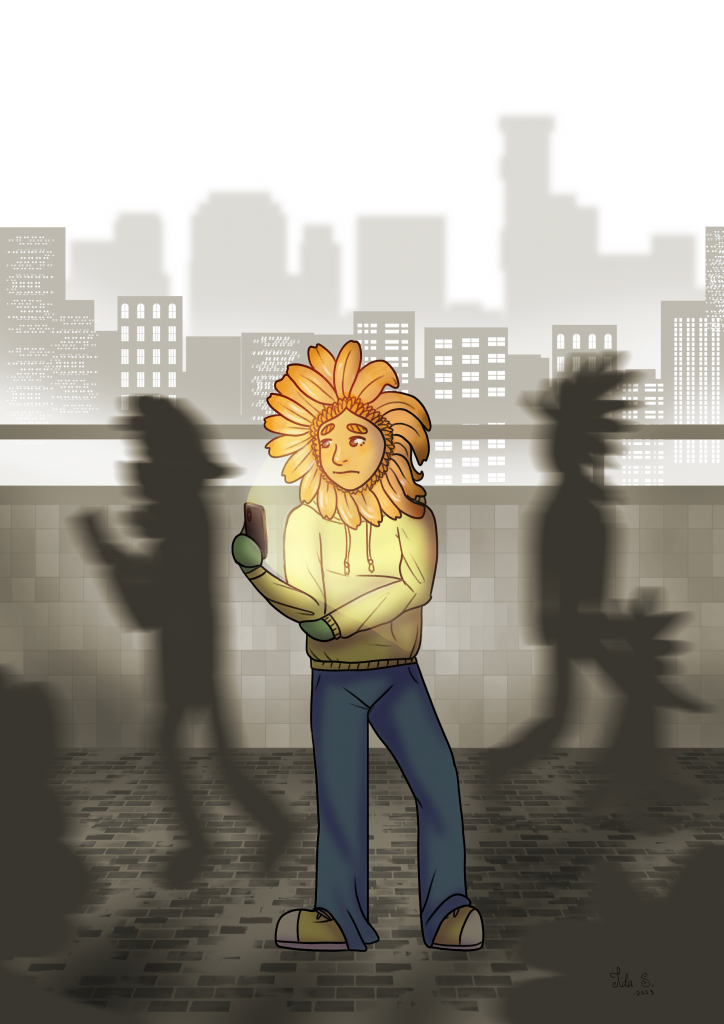Story 2: High Expectations, Harsh Reality
This story describes one perspective on how highly skilled internationals experience working and living in Finland. It is based on an analysis of interviews with 61 internationals, combining the experiences, feelings, and thoughts shared by many of them. Read more about how the story was constructed here and check out the rest of the stories here.
Story 2: High Expectations, Harsh Reality
I had heard years before from fellow students in my home country that Finland was a great place to study, with high-quality teaching and excellent care for students. After working abroad for a few years, I decided to pursue further studies and was accepted into a doctoral programme at a Finnish university.
At first, I was excited and expecting to meet friendly and welcoming Finnish people. However, I soon discovered the harsh isolation that foreigners often experience in Finnish society.
What particularly surprised me was the Finnish style of social interaction. Coming from a culture where social relationships are active, close-knit, and affectionate, Finns’ tendency to withdraw from interaction felt distressing. I had to ask myself if it was because of me and because I was different and behaved differently? Or are Finns introverts by nature?
On the other hand, I have also encountered Finnish people who are always willing to help foreigners in various matters. It has been both interesting and somewhat confusing to observe that Finns often treat us foreigners with an “either-or” mentality: they either avoid meeting and talking to us, or they demonstrate a willingness to go above and beyond to offer help. I genuinely appreciate the Finns who are willing to do that. Encountering such people has made dealing with other challenges somewhat easier.

Another surprise was that it felt like my education and skills were not valued in Finland. Student life here was pleasant, especially because there were other international students around to spend time with. However, as I transitioned to a new position at the university after completing my PhD, things started changing. I lost the supportive social network I had as a student and had to face various work challenges alone in a predominantly Finnish working environment.
The higher I climbed in the university hierarchy, the more conservative the operating culture seemed to become. The university higher-ups, mostly older Finnish individuals, were resistant to speaking English and tended to side with each other, excluding outsiders.
Due to my upbringing, I highly value hard work, helping others, and making meaningful contributions to society, but it was challenging to do so when I felt that my worth as an individual or my professional expertise were not recognized.
I highly value hard work, helping others, and making meaningful contributions to society, but it was challenging to do so when I felt that my worth as an individual or my professional expertise were not recognized.
Additionally, the bureaucracy in my university primarily operated in Finnish, which posed difficulties for me as I didn’t understand the language. I had to rely on Google Translate or bother my Finnish colleagues for translations of documents, decisions, and instructions that I needed.
Yet another aspect that made me uncertain was the difficulty in obtaining support for research from the university and funding institutions. I have even wondered if there might be some form of partly unconscious racial profiling behind these decisions. Although I have no concrete evidence due to the lack of transparency in the system and the inability to know the backgrounds of other applicants, as a non-white, non-European researcher who has faced multiple rejections of funding applications, I feel uneasy about this situation. I believe there should be greater openness and transparency in these matters.
Despite the difficulties, I have chosen to remain in Finland for now. I have advanced in my career and currently lead my own research team. Relocating elsewhere might mean a lack of resources and limitations on what I can accomplish at my desired level.
Moreover, there are aspects of Finnish society and quality of life that I have learned to appreciate greatly, such as the reliable public services and proximity to nature, which allows me to enjoy outdoor activities important to me.
However, I must admit that I often dream of moving away. I have not really felt welcome in Finland. I have been lonely and at times depressed.
My feeling is that despite Finland’s expressed desire to attract international talent, the country is not yet fully accepting of foreigners in workplaces and social circles, particularly if they do not speak Finnish fluently, like most of us don’t.
I must admit that I often dream of moving away. I have not really felt welcome in Finland.
Therefore, it would be disingenuous for me to recommend moving to Finland to other international talents without reservation. My advice is for them to consider coming for a trial period of two or three years to gauge their experience. If they choose to stay beyond that, they do so at their own risk.
Does this story resonate with your own experiences or those of people you know? Did it surprise you in any way? Leave a comment below or engage with us on LinkedIn and Twitter! Check out the other four stories here, too.
